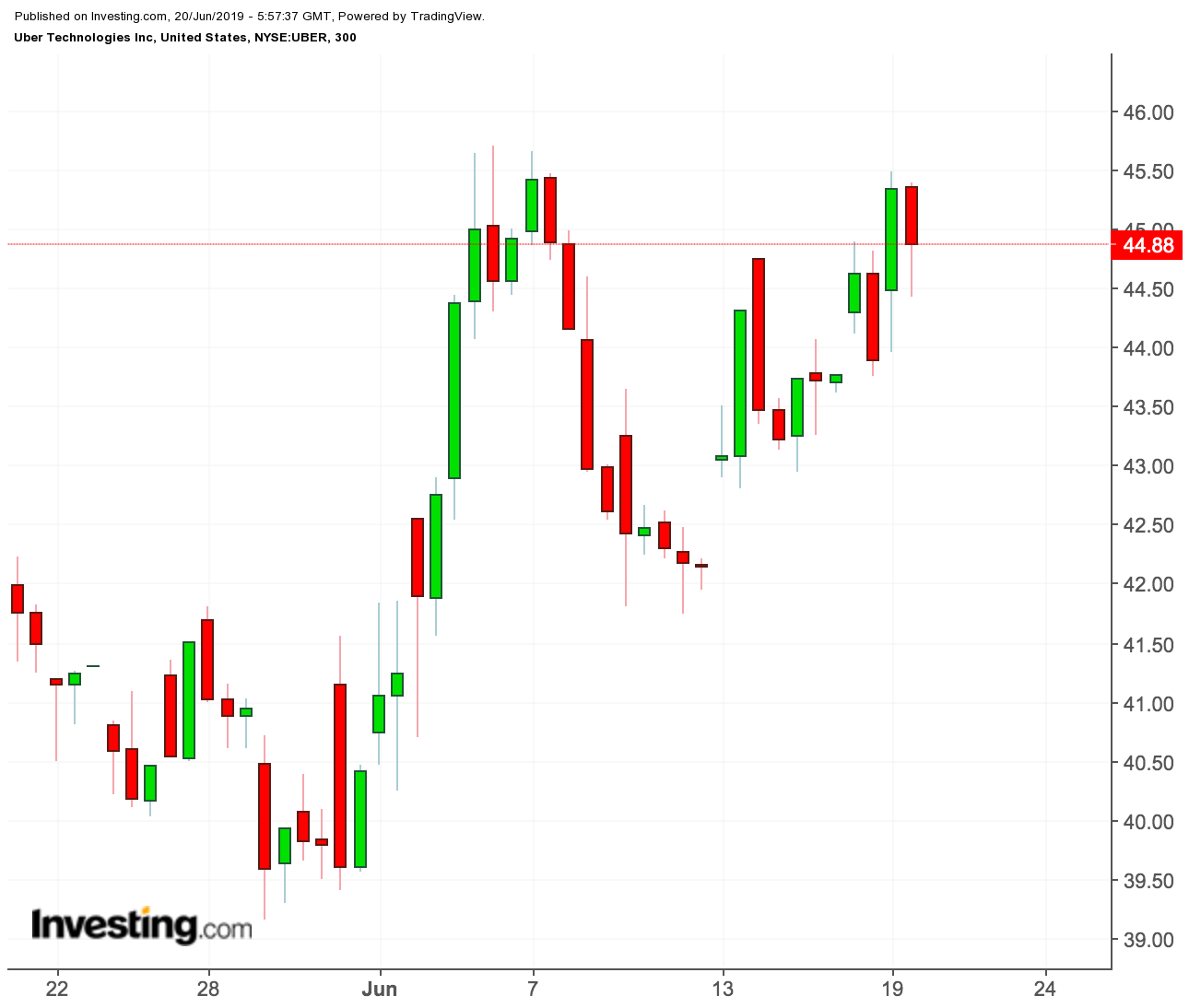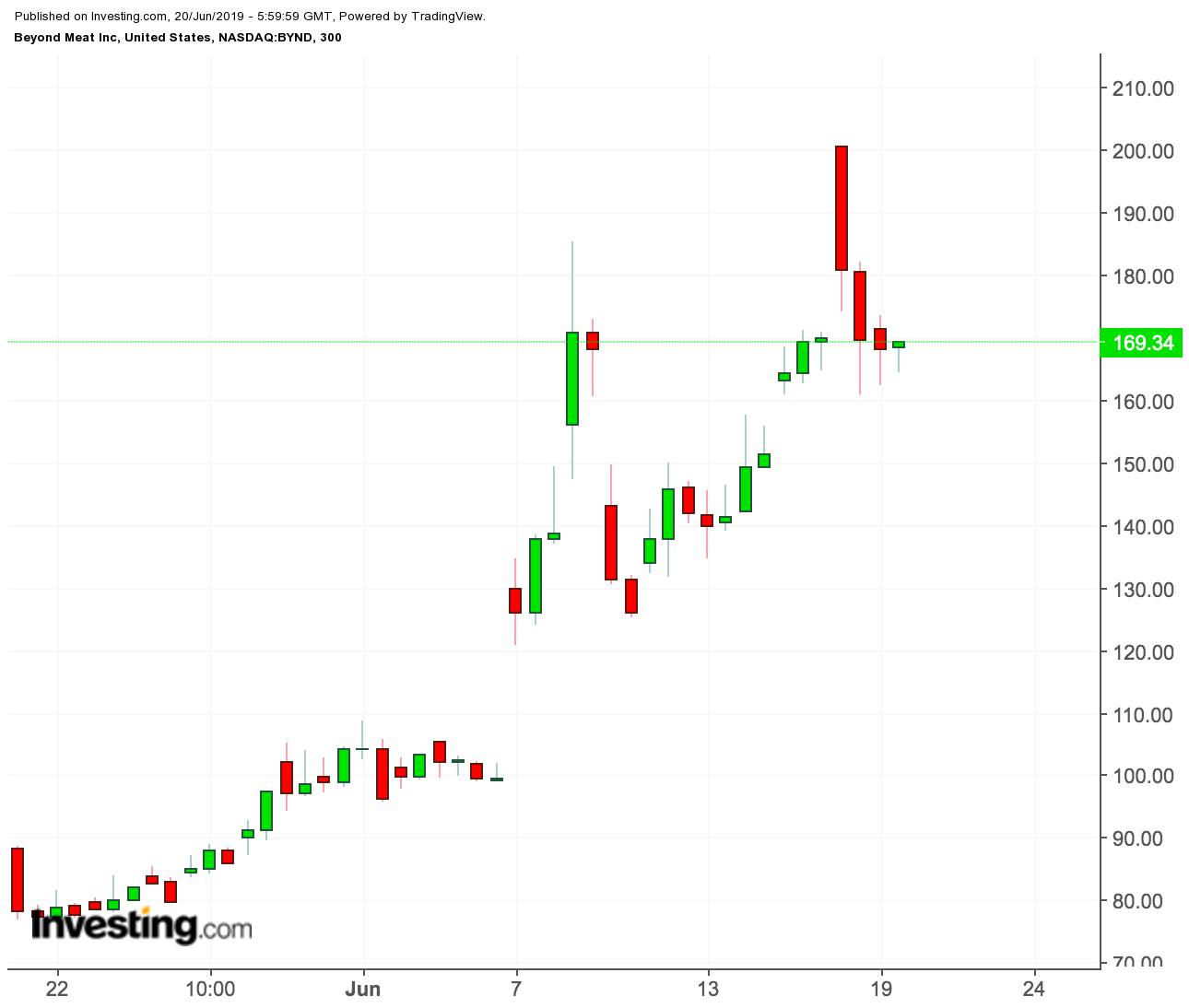There is no sure way to predict a bubble in the making for any asset class, but there are some fairly similar warning signs that emerge before the values of an asset inflate beyond its realistic value. The latest evidence of a possible bubble being formed comes from the eye-popping success of some initial public offerings (IPOs).
The most recent of these is online pet supply retailer Chewy Inc (NYSE:CHWY), whose first day gain on June 14 surged at one point to 88%. A day earlier, freelance services marketplace Fiverr International (NYSE:FVRR) popped 90% higher in its initial session, and on June 12 cybersecurity tech company CrowdStrike Holdings Inc (NASDAQ:CRWD) rose as much as 87% on its first day as a publicly traded company.
In total, more than a dozen IPOs surged by at least 50% in their debut sessions this year, according to Bloomberg data. Leaps of this magnitude have kept the deal flow active, despite ride-sharing app Uber Technologies' (NYSE:UBER) May 10 flop, ending its debut trading day almost 8% lower.

What does this overwhelming reception by investors show to watchers of asset bubbles? Without going into the business merits and demerits of these new players, one thing is clear: investors are ignoring all the warning signs about the economy and possible recession that could be just round the corner.
The latest monthly global fund manager survey from Bank of America found that fund managers are as bearish now as they had been during the worst of the financial crisis a decade ago. This survey also found that these managers are overweight cash and underweight equities.
Of course, it’s almost impossible to predict which of these companies will be successful and which will leave their investors in trouble. History, however, tells us that an IPO’s earlier success is no guarantee of the company’s long-term viability. A Bloomberg analysis of companies that debuted since the financial crisis and popped more than 100% in their first day of trading shows that most stocks have fallen since their initial surge.
Debt-Laden Growth
The usual culprit in any IPO’s debacle has been the cash-burn that investors initially ignore as these companies show a debt-laden path to growth. Take the example of electric carmaker Tesla Inc (NASDAQ:TSLA) and social media app Snapchat developer Snap (NYSE:SNAP). Since their successful debuts in the past decade, both are still burning a huge amount of cash and remain far away from being sustainably profitable.
Along with these failures, we also have winners. Amazon (NASDAQ:AMZN), Google (NASDAQ:GOOGL), and Facebook (NASDAQ:FB) created massive wealth for their long-term investors and they continue to be solid investments. But it's important to note that not all IPOs are going to be successful, especially if their share values are driven by pure market frenzy.
Beyond Meat Inc (NASDAQ:BYND) is a case in point — its shares have surged more than 500% since its first session last month. The company, no doubt, has great momentum and could become profitable soon, but the fast and massive surge in its share price makes it vulnerable to a big correction.

As of last Monday, traders were short roughly 5.87 million shares of Beyond Meat, about 51% of the float, or shares outstanding that are available to trade, according to financial analytics firm S3 Partners. Bets against Beyond Meat have become so popular that it is one of the most expensive stocks to borrow to bet against, according to S3.
Bottom Line
Investing in IPOs can be a successful bet in the short-run, especially when a lot of money is chasing new ideas, but that initial euphoria may not last forever. Investors should consider these opportunities with a healthy amount of skepticism. Their stock prices can’t continue growing at a torrid pace forever and these companies have a tough road ahead to show sustainable profitability.
